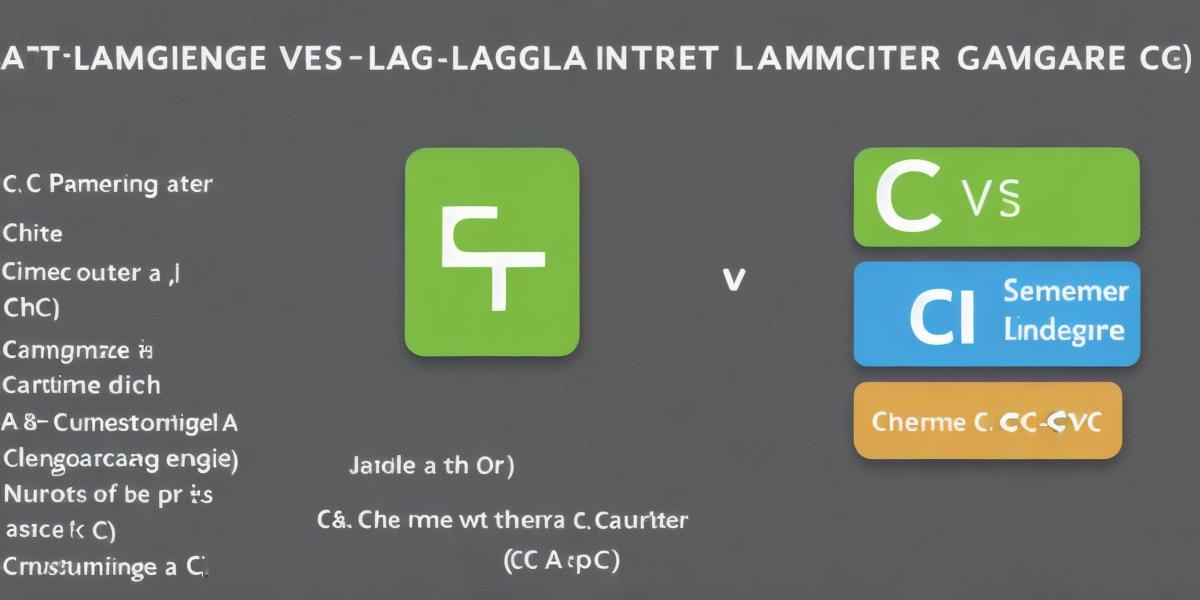C# vs C++: Which Language is Simpler to Learn?

If you’re an Unreal Engine developer, chances are you’ve dabbled with both C and C++ programming languages at some point in your career. While they share many similarities, there are also some key differences that can make one language easier to learn than the other. In this article, we will explore the pros and cons of each language and help you decide which is best for you.
Introduction
C and C++ are two of the most popular programming languages used in game development, particularly with Unreal Engine. Both languages have their own strengths and weaknesses, but which one is easier to learn? In this article, we will examine the key features of each language and explore how they can impact your learning experience.
C: A Beginner-Friendly Language
C is a modern, object-oriented programming language that was first introduced by Microsoft in 2002. It is designed to be easy to read and write, making it a popular choice for beginners. Here are some of the key features of C that make it beginner-friendly:
- Easy Syntax: C has a clean, simple syntax that makes it easy to learn and understand. Its code is easy to read and can be written quickly, which makes it a great choice for beginners who want to get up and running fast.
- Type Safety: C is a statically typed language, which means that you must explicitly declare the data type of a variable when you create it. This helps prevent errors and makes your code more reliable.
- Garbage Collection: C uses automatic garbage collection, which means that the system takes care of managing memory allocation and deallocation for you. This makes coding easier and reduces the risk of memory leaks.
- Rich Standard Library: C has a rich standard library that provides many useful classes and methods for common tasks such as file I/O, network communication, and data manipulation.
C++: A Low-Level Language
C++ is an older programming language that was first introduced by Bjarne Stroustrup in 1983. It is known for its low-level control over memory and hardware, making it a popular choice for systems programming and game development. Here are some of the key features of C++ that make it challenging to learn:
- Low-Level Control: C++ gives you direct access to memory and hardware resources, which can be both powerful and dangerous. This makes it a great choice for low-level systems programming, but also requires a deep understanding of computer architecture and operating systems.
- Template Metaprogramming: C++ has powerful template metaprogramming capabilities that allow you to write generic code that works with any data type. While this can be very useful in some cases, it can also make the language more difficult to learn for beginners.
- Manual Memory Management: C++ requires manual memory management, which means that you must allocate and deallocate memory yourself. This can be error-prone and requires a deep understanding of memory management techniques.
- Limited Standard Library: C++ has a limited standard library compared to C, which means that you will need to write more code from scratch. However, this also gives you greater control over your code and allows you to optimize it for specific use cases.
Summary
Both C and C++ have their own strengths and weaknesses, but ultimately the choice between them will depend on your individual needs and preferences as a developer. If you are a beginner who wants an easy-to-learn language with a rich standard library, C is a great choice. However, if you need low-level control over memory and hardware resources, or want to write generic code that works with any data type, C++ may be the better choice.
FAQs
- Is C easier than C++?
Yes, in general, C is considered easier to learn and use than C++ due to its clean syntax, rich standard library, and automatic memory management features.
- What are some common mistakes to avoid when learning C or C++?
Some common mistakes to avoid when learning C or C++ include forgetting to declare data types, using manual memory management incorrectly, and not understanding the principles of object-oriented programming.








